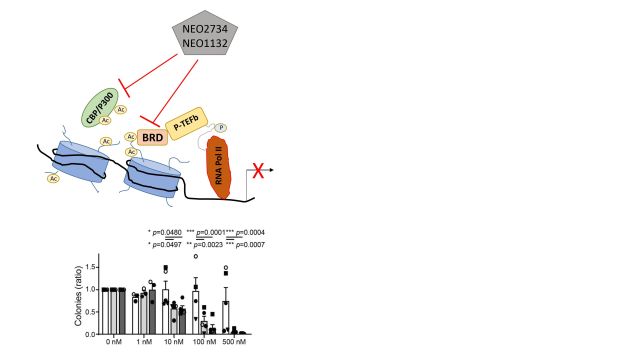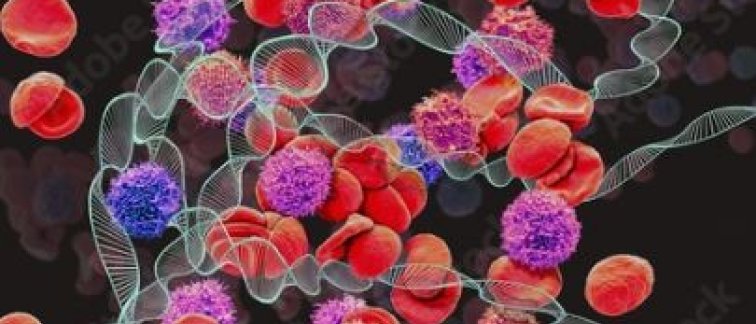The research group of Linda Smit at the department of Hematology is developing treatment strategies to increase survival chances of AML patients. AML is a disease characterized by transcriptional dysregulation resulting in a block in differentiation and aberrant self-renewal. Chemotherapy is the standard treatment for AML patients, but unfortunately, after treatment often a small population of leukemia cells survives and is able to initiate recurrence, so-called leukemia stem cells. An inhibitor targeting both bromodomain and extraterminal domain (BET) and CPB/P300 proteins, named NEO2734, is efficiently reducing the viability of AML cells by inducing apoptosis, but is also able to eliminate leukemic stem/progenitor cells from AML patient samples. Importantly, NEO2734 could increase the effectiveness of combination chemotherapy treatment in an in vivo AML patient-derived xenograft mouse model. Thus, dual inhibition of BET and CBP/P300 is a promising therapeutic strategy for AML patients. The results of this research is published in the journal ‘Hemasphere’


